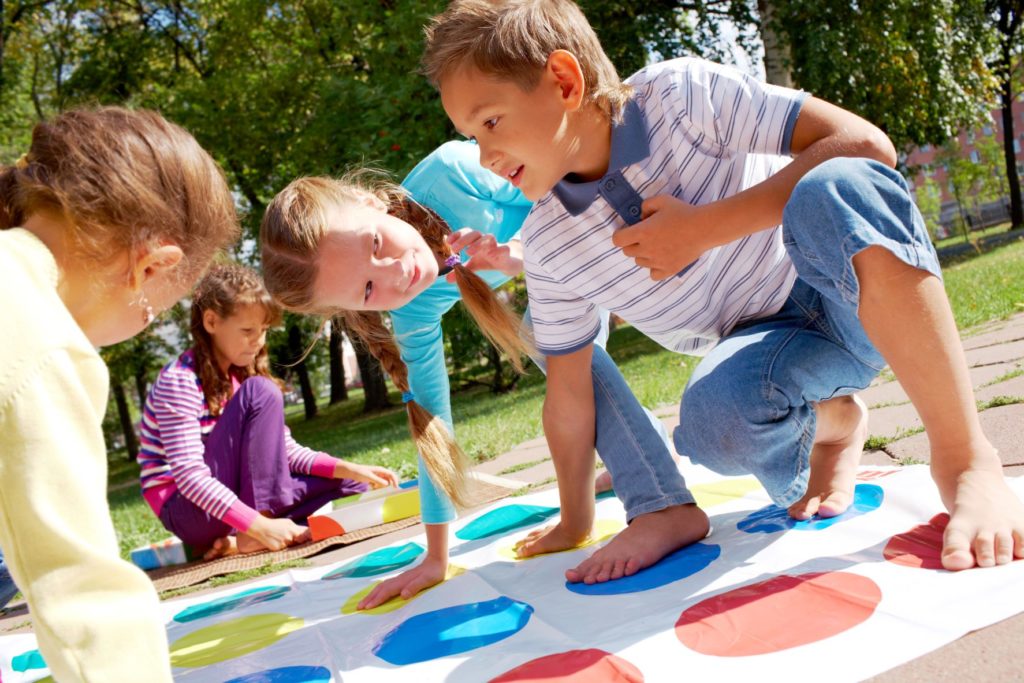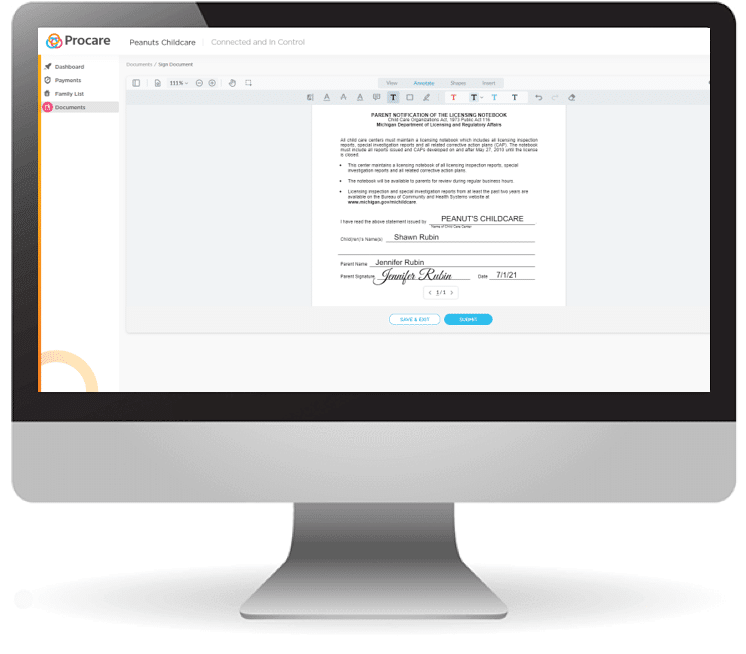
Child care providers know that maximizing early learning should be the focus of every child care program that wants to help kids achieve their full potential.
To effectively support early childhood learning, child care programs must recruit staff members and educators with the right skills to provide exceptional care, maintain a safe and healthy environment and deliver a high-quality early learning experience.
Let’s take a look at the 10 most important skills that child care centers, preschools and early learning programs need to run a high-quality program and why these skills are critical for program success.
Fostering Caring and Responsive Relationships with Kids
The most important responsibilities of early childhood learning professionals are the well-being, development and care of children. Fulfilling this responsibility requires the intentional fostering of caring and responsive relationships between early childhood educators and the children they teach.
A caring and responsive relationship is one where caregivers are genuinely sensitive to the needs of every child, concerned for their safety and well-being and respond quickly and supportively to their needs.
When caregivers effectively foster caring and responsive relationships, kids experience a sense of security and belonging that supports optimal growth across all areas of development.
Creating a Healthy and Safe Learning Environment
Early childhood learning programs need staff members who can create and maintain a healthy and safe learning environment for kids. That includes:
- Organizing the layout and furniture in a classroom to prevent injuries
- Teaching good hygiene practices to help kids avoid illness
- Providing nutritious meals and teaching good eating habits that promote wellness
- Constructing classroom environments that are stimulating and encourage play, learning and exploration
- Possessing certifications in first aid and CPR, and being able to provide emergency aid to an injured child
Early educators with a keen eye for maintaining child safety can spot potential risks before they turn into injuries or health emergencies. Their attention to detail and diligence make them a huge asset for the programs that employ them.
Establishing an Inclusive and Equitable Atmosphere
How many of us have been in a classroom where some kids were treated differently from others, or where it felt like the teacher had favorites?
Even young children can recognize when some of their peers receive special treatment because of how they look, how they talk or who their parents are. This experience can damage a child’s confidence and self-esteem, even impacting long-term growth. That’s why being able to create a truly inclusive and equitable atmosphere is so important for early learning programs.
An inclusive and equitable atmosphere is one where kids receive equal treatment and an equal opportunity to succeed, regardless of who they are or where they came from. Programs that can deliver on this elevate their reputation among all members of the community.
Understanding Principles of Learning and Child Development
To effectively support early learning, centers need staff members with a deep understanding of child development and the principles of learning.
Those principles include things like encouraging contact between kids and educators, strengthening cooperation with peers, emphasizing time on task, encouraging repetition, communicating expectations and respecting different ways of learning. Kids need a mix of variety and constancy. They need to be allowed to fail without immediate correction from their teachers and they need regular rewards and positive reinforcement to stay motivated.
Understanding the principles of learning and how they interface with child development allows teachers to tailor their approach based on the needs and learning style of each child — regardless of the program’s stated educational philosophy.
Advancing Cognitive and Physical Development

Child care programs and the staff who work there need to be experts on helping kids advance their cognitive and physical development.
On the cognitive development side, that means presenting kids with developmentally appropriate lessons, activities and learning opportunities that foster curiosity, exploration and problem-solving while conveying important concepts across subject areas like math, science, technology, music and social studies.
On the physical development side, high-quality experiences are supported by developmentally appropriate activities, equipment, challenges and teaching strategies that allow kids to develop their fine and gross motor skills while developing a genuine enjoyment of physical activity.
Supporting Social/Emotional Development
Supporting children’s social and emotional development is a critical skill for early childhood educators and something that needs to happen in every successful early learning program.
Early learning professionals help kids develop their emotional coping and social skills by acknowledging their emotions, building up their self-esteem and modeling appropriate self-regulation and conflict resolution skills and techniques.
In diverse classroom settings, teachers who intentionally cultivate an inclusive and equitable environment help kids learn to love and take pride in their heritage and cultural identities.
Supporting Language Acquisition

Knowing how to support language development at an age-appropriate level is a crucial skill for early childhood learning programs. Successful educators recognize that kids don’t really learn language — instead, they acquire it by being immersed in responsive and language-rich environments created by their caregivers.
To effectively support language acquisition, educators use words and gestures to communicate about objects and activities in the environment. They talk to kids about activities, communicate back and forth, sing songs, read books and investigate new words together — all in the context of exploration and play.
Educators who understand the language acquisition process are a great asset to early learning programs and the children they serve.
Practicing Child Observation, Documentation and Assessment
The process of observing each child’s behavior and development, documenting those observations and assessing their progress is critical to optimizing the early learning process.
Educational assessments help teachers understand where kids are making the most progress and identify the best opportunities for improvement. They also give parents the opportunity to get involved in their child’s education, either by providing enrichment activities in areas where they excel or providing additional support in areas where they could be lagging behind peers.
Effective observation, documentation and assessment of the learning process also helps educators understand the impact of their own methods, which can evolve over time to meet the needs of students and improve learning outcomes.
Forging Family-Teacher Partnerships
The most important connections in early learning are the caring and responsive relationships between children and their educators — but the family-teacher partnership is a very close second.
Early learning programs need staff members who can effectively forge partnerships with parents based on their common objective of maximizing learning and developmental outcomes for the child. Successful parent engagement supports key aspects of the social/emotional developmental process for kids, including behavior management and conflict resolution, while opening the door for parents to access community educational, nutritional, and family support through their child care provider.
Effective Child Care Management and Administration
Effective child care management and administration is a cornerstone of the most effective early learning programs.
These programs are taking advantage of trustworthy and easy-to-use child care management software that alleviates the worries of child care management, enabling staff to spend more time engaging with the children and families they serve.
Trust Procare Solutions to Support Early Childhood Learning at Your Center

Many of the skills needed to effectively support early childhood learning are covered by the curriculum of ECE diploma and degree programs across the country. To complement these skills with the right technology that makes life easier for educators, centers across the country place their trust in Procare Solutions.
Procare offers easy solutions for staff management, digital daily reporting, lesson planning, being able to share and sign documents electronically and parent engagement that support early childhood learning objectives. From the moment your first kids arrive in the morning, until the last eager learner goes home for the day, Procare will be the all-in-one solution to help you successfully run your early learning program.
Ready to learn more?


